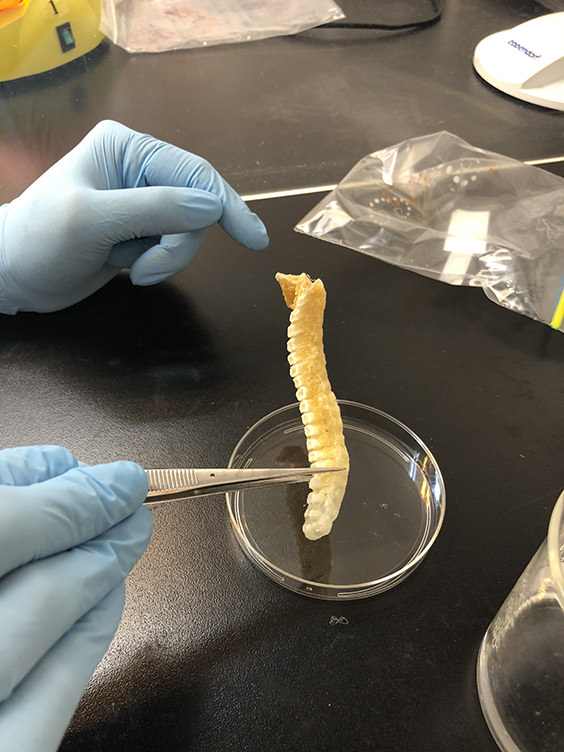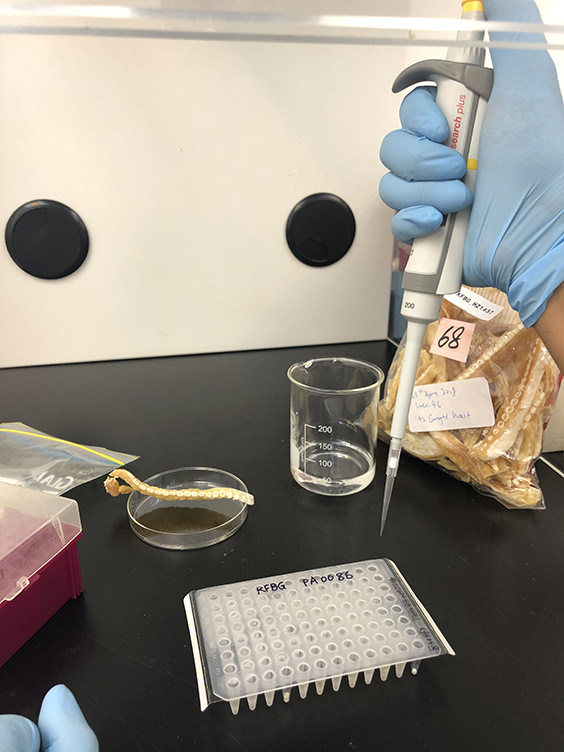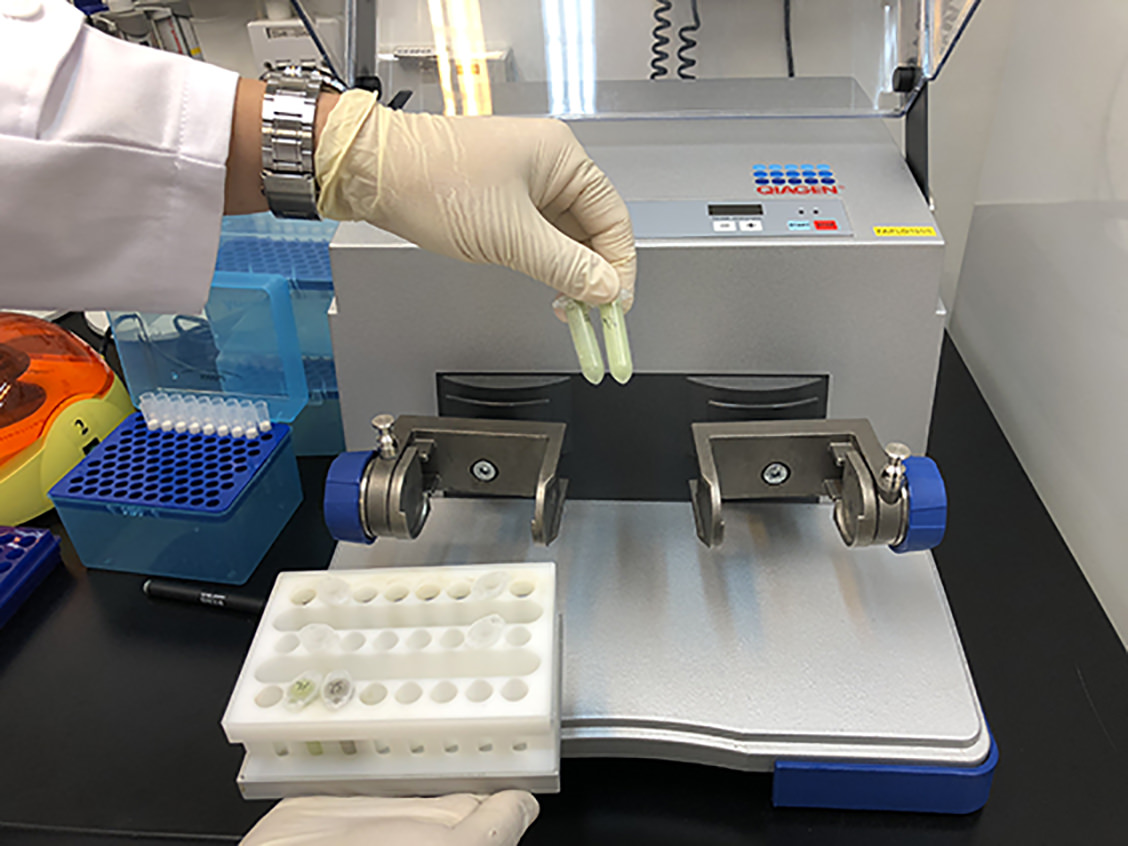
Our Conservation Genetics Laboratory was established in 2010 to provide in-house facilities and expertise in DNA-based methods. We apply a variety of genetic techniques to support ongoing biodiversity conservation and restoration projects. Our laboratory staff work with other KFBG researchers and external partners to monitor illegal wildlife trade, screen genetic diversity of rare species, identify and prioritise species for conservation and provide information on forest ecology. We have developed DNA forensic techniques to monitor trade in pangolins, shark fins and medicinal plants. Our work has been cited to support stronger legal protection for pangolins and endangered sharks by CITES (the Convention on International Trade in Endangered Species of Wild Fauna and Flora). Findings from our analyses inform conservation management plans and species selection for forest restoration.


Our laboratory routinely handles DNA samples collected by Flora Conservation Department’s herbarium and field staff to support local and regional plant conservation. We also receive samples from KFBG’s Wild Animal Rescue Centre and from the Agriculture, Fisheries & Conservation Department (AFCD) of Hong Kong SAR Government to verify species identifications and determine possible origins of rescued wildlife and seized specimens.


